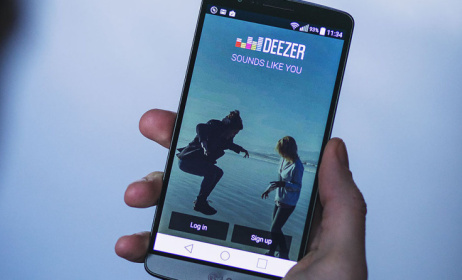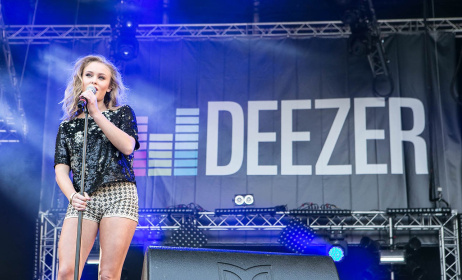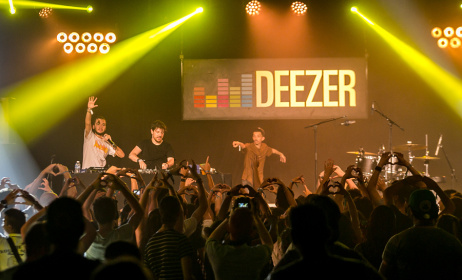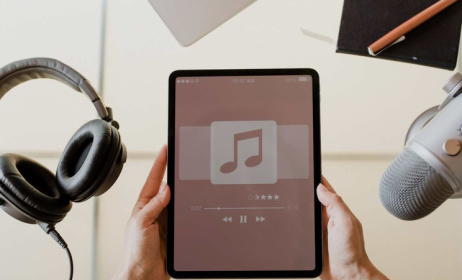AI-generated music now makes up a third of daily uploads to Deezer
Fully AI-generated music now accounts for 34% of all tracks uploaded to Deezer each day, according to new figures released by the French music streaming platform.
 Deezer.
Deezer.
Deezer said it currently receives more than 50 000 AI-generated tracks daily — up from 30 000 in September, 20 000 in April, and 10 000 in January, when the company first introduced its proprietary AI detection tool.
The platform estimates that as much as 70% of streams for these AI-created songs are fraudulent, with the affected plays removed from royalty calculations. Although fully AI-generated tracks represent only around 0.5% of total streams on Deezer, the company said that fraud remains the primary motive behind most uploads.
To limit their impact, Deezer excludes AI-generated tracks from editorial playlists and algorithmic recommendations.
Based on its new data, the platform now receives about 147 000 new tracks daily, compared with roughly 107 000 in September. The increase reflects the growing volume of automated and AI-produced material being uploaded to streaming services.
Deezer began using its AI detection system in January and rolled out an AI tagging feature in June, claiming to be the first platform to explicitly label AI-generated music. The technology can identify fully synthetic audio created by leading generative models such as Suno and Udio. The company has also filed two patents for its detection methods, which identify distinct “signatures” in synthetic audio. Billboard has since adopted Deezer’s tool to verify whether charting tracks are AI-generated.
The rise in AI music coincides with the release of an Ipsos survey commissioned by Deezer, which examined public attitudes toward artificial intelligence in music creation. The study, conducted across eight countries with 9 000 participants, found that 97% of respondents could not distinguish between human-made and AI-generated songs in a blind test. More than half (52%) expressed discomfort at being unable to tell the difference.
A large majority (80%) said fully AI-generated tracks should be clearly labelled, while 73% wanted transparency about whether streaming platforms recommend synthetic content. Nearly three-quarters (73%) considered it unethical for AI developers to use copyrighted material without permission, and 65% said AI models should not be trained on such content.
Concerns about the impact on musicians were also high, with 70% of respondents saying AI-generated music threatens artist income and 69% believing synthetic tracks should receive lower royalty pay-outs than human-created works.
Deezer’s CEO, Alexis Lanternier, said the results showed broad public support for transparency measures. The company has positioned itself at the forefront of efforts to address AI-generated content and low-quality uploads, having deleted 26 million tracks last year as part of its “artist-centric” payment initiative launched with Universal Music Group in 2023.
The issue extends beyond Deezer. In September, Spotify announced it had removed over 75 million spam and AI-generated tracks while introducing new content policies to regulate artificial music on its platform.



























Commentaires
s'identifier or register to post comments